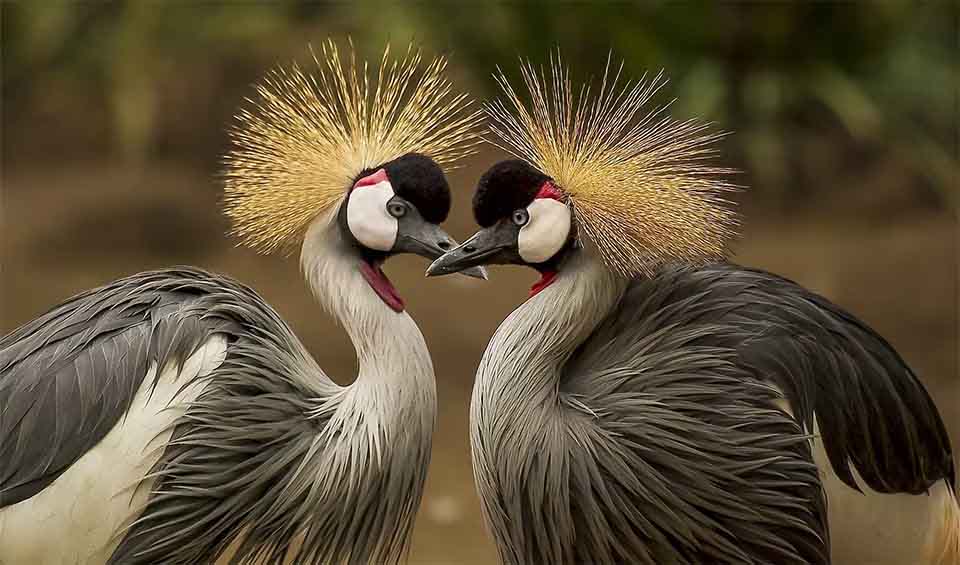Balearica – Crowned cranes
The two species in this genus look like sisters with slight differences in appearance
These birds are known for their elaborate feathered crowns and elegant stature, and they continue to stride through the wetlands and grasslands of Africa despite the extinction of their kin.
The Black and Grey Crowned Cranes are notable for their adaptability. While they naturally inhabit wetlands, which are critical for their survival, providing them with food and a safe haven for nesting, these cranes have also been known to venture into urban areas. Here, they exhibit opportunistic feeding behaviors, sifting through waste to supplement their diets. Nevertheless, they prefer a diet composed of a variety of insects like grasshoppers and other invertebrates, along with plant material, including seeds, grain, and even the occasional small vertebrate.
One of the most extraordinary behaviors of Balearica cranes is their practice of nesting and roosting in trees—a rare habit among cranes, who are typically ground-dwellers. This arboreal tendency not only distinguishes them from other crane species but also provides a level of protection from ground predators. Their ability to perch high in the branches requires a unique set of skills and adaptations that are not commonly found in other large birds adapted to life in open spaces.
The breeding rituals of Balearica cranes are intricate and involve an elaborate dance, with wings flapping and a complex series of calls. These displays serve to strengthen pair bonds and establish mating rights. The nests of these cranes are also quite large and are typically built from grasses and other vegetation, well hidden among reeds or in trees.
Unfortunately, human activities have led to a significant decline in the populations of these majestic birds. The destruction of wetlands for agriculture, development, and the drainage for other human needs has greatly reduced their natural habitats. Moreover, the collection of eggs and chicks for trade, along with hunting for their meat and feathers, has further threatened their existence.
Species in this genus
Grey crowned crane
It holds significant cultural and spiritual importance in African cultures, often associated with wisdom, longevity, and good fortune
Black crowned crane
In some regions, they are regarded as messengers of the gods or as symbols of rain and fertility



